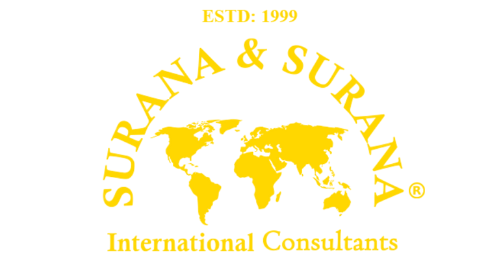Intellectual property (IP) is a valuable asset for businesses and individuals alike. It encompasses a range of creations of the mind, including inventions, artistic works, and brand identities. Protecting your IP is crucial to safeguarding your ideas, innovations, and creative expressions. In this guide, we will explore the various forms of IP and delve into strategies for their effective protection.
Understanding Intellectual Property
Intellectual property refers to intangible assets that are a result of human creativity and innovation. Although intangible, they hold significant value and can be legally protected. Just like physical property, IP grants exclusive rights to the creator or owner. The five most important type of IP includes Trademarks, Copyright, Patent, Trade Secret and Industrial Design.
Trademarks: Protecting Brands and Identities
Trademarks are distinctive signs, symbols, or designs that distinguish the goods or services of one business from those of others. They play a vital role in branding and marketing strategies, ensuring that customers can readily identify and differentiate products or services. Trademarks can include logos, brand names, slogans, and even sounds or scents associated with a particular brand as depicted below;

Once registered, trademarks can provide exclusive rights to the owner, preventing others from using similar marks in the same industry.
Copyrights: Safeguarding Creative Works
Copyrights protect original works of authorship, including literary, artistic, musical, and dramatic creations. Examples of copyrightable works encompass novels, poems, songs, paintings, photographs, software code, and architectural designs. Copyright protection arises automatically upon creation, but registering your copyright with the appropriate authorities is highly recommended.
By registering your copyright, you protect your, a) Economic Rights i.e., the owner’s right to profit financially from other people using its creations. For instance, the ability to permit or deny the use of the work in various forms of reproduction, the ability to forbid the translation of the work without permission, etc. and b) Moral Rights i.e., protection of non-economic interests of the author. The ability to object to changes made to a piece of work and the ability to claim authorship.
In India, Copyrights protection is granted under the Copyright Act, 1957 which provides for numerous categories of works with varying levels of copyright protection, which are listed below:
- Literary, dramatic, musical, and artistic works: Life of the author plus 60 years after death.
- Anonymous and pseudonymous works: 60 years from the date of publication. However, if the identity of the author is disclosed before the expiry of that 60 years, then the term of protection shall be life of the author plus 60 years after death.
- Posthumous works: 60 years from publication.
- Cinematograph films: 60 years from publication.
- Sound recordings: 60 years from publication.
- Government work: 60 years from publication.
- Works of public undertakings: 60 years from publication.
- Works of international organizations: 60 years from the publication of the work.
Patents: Securing Inventions and Innovations
Patents provide exclusive rights to inventors and innovators, granting them the ability to prevent others from using, making, or selling their inventions without permission. A patent is granted for a novel, useful, and non-obvious invention, be it a product, process, or design.
It provides a time-limited monopoly, typically lasting 20 years from the filing date of the patent application.
Obtaining a patent requires a detailed and comprehensive application, describing the invention in precise terms. It is essential to conduct a thorough patent search to ensure that your invention is truly novel before proceeding with the application process. Patents can be complex, and seeking the assistance of a patent attorney is highly recommended to navigate the intricacies of the patent system.
Trade Secrets: Preserving Confidential Information
Trade secrets encompass valuable and confidential information that provides a competitive advantage to a business. These can include formulae, processes, algorithms, customer lists, and other proprietary information. Unlike other forms of IP, trade secrets are not registered but rather kept secret through internal processes and measures.
To protect trade secrets, it is crucial to establish and enforce strict security measures within your organization. This may involve implementing non-disclosure agreements (NDAs), restricting access to sensitive information, and educating employees about the importance of maintaining secrecy. In cases of misappropriation or theft of trade secrets, legal remedies can be pursued to hold the responsible parties accountable.
Industrial Design: Preserving aesthetic value of Articles
An industrial design constitutes the ornamental aspect of an article, it may consist of three-dimensional features, such as the shape of an article, or two-dimensional features, such as patterns, lines, or color. Industrial designs are aesthetic in nature, non-functional and have no utility.
The owner of the registered industrial design has the right to prohibit third parties from making, selling, or importing articles bearing or embodying a design which is a copy, or substantially a copy, of the protected design, when such acts are undertaken for commercial purposes.
Strategies for Protecting IP
Protecting your IP requires a proactive and comprehensive approach. Here are some strategies to safeguard your valuable creations:
Conduct Thorough Research and Due Diligence
Before embarking on any creative endeavor or branding initiative, it is essential to conduct thorough research to ensure that your ideas, trademarks, or inventions do not infringe upon existing IP rights. This includes conducting trademark searches, patent searches, and copyright searches to identify any potential conflicts or similarities.
By investing time and resources into research and due diligence, you can mitigate the risk of infringing upon others’ IP and increase the chances of successfully protecting your own.
Register Your IP
While certain forms of IP, such as copyrights, arise automatically upon creation, registering your IP provides additional legal protections and benefits. Registering trademarks, copyrights, patents and industrial design with the appropriate governmental authorities strengthens your ownership rights and enhances your ability to enforce those rights in case of infringement.
Further, to seek protection of your IP in separate geographical locations, you will have to register your IP in each of those regions separately.
Consulting with an IP attorney can help guide you through the registration process, ensuring that all necessary steps are taken to secure your IP rights.
Implement Confidentiality through Non-Disclosure Agreements (NDAs)
Non-disclosure agreements (NDAs) are vital tools for protecting trade secrets and confidential information. These agreements establish a legally binding contract between parties, preventing the disclosure or unauthorized use of sensitive information.
When engaging in business relationships, partnerships, or collaborations, it is crucial to have NDAs in place to safeguard your trade secrets and maintain control over your IP. Consulting with an attorney to draft comprehensive and enforceable NDAs tailored to your specific needs is highly recommended.
Enforce Robust IT Security Measures
Your company’s IT framework needs to be strengthened with robust security measures. Here are some specific examples of robust security measures that your company can implement:
- Password protection: All computer networks should have strong passwords that are changed regularly.
- Data encryption: Sensitive data should be encrypted to protect it from unauthorized access. Data encryption can be done using a variety of methods, such as using a VPN or encrypting files with a password.
- Virtual private network (VPN) access: A VPN can be used to create a secure connection between your company’s network and the internet. This helps to protect your data from being intercepted by unauthorized users.
- Wi-Fi Protected Access 2 (WPA2): WPA2 is a security protocol that can be used to protect your Wi-Fi network from unauthorized access. WPA2 uses encryption to protect your data, and it is considered to be one of the most secure Wi-Fi security protocols available.
- Reliable software tools: You should use reliable software tools for storing and distributing files. These tools should have strong security features to protect your data from unauthorized access.
By implementing these robust security measures, you can help to protect your company’s data from cyber-attacks and in turn protect your IP against infringement.
Monitor and Enforce Your IP Rights
Monitoring your IP rights is an ongoing process. It is essential to remain vigilant and promptly address any instances of infringement or unauthorized use. Regularly monitoring the marketplace, conducting searches, and utilizing online monitoring tools can help identify potential infringements.
If you discover infringement or unauthorized use of your IP, taking swift and decisive action is crucial. Consulting with an IP attorney can provide guidance on the best course of action, whether it involves sending cease-and-desist letters, filing infringement lawsuits, or pursuing alternative dispute resolution methods.
Protect Your IP with Surana & Surana International Consultants
When it comes to IP protection, Surana & Surana International Consultants is a trusted consultancy firm that can provide expert guidance and support. With a team of experienced IP professionals, Surana & Surana International Consultants offers a range of services to help individuals and businesses safeguard their IP assets.
From IP registration to trade secret management, Surana & Surana International Consultants can assist you at every step of the IP protection process. By leveraging our expertise, you can ensure that your IP rights are secure and enforceable.
To learn more about Surana & Surana International Consultants and our services, visit our website at www.ssinternational.in or contact us at [email protected].
Thus, IP is a valuable asset that requires proactive protection. Each form of IP plays a crucial role in safeguarding your ideas, innovations, and creative works. By understanding the different forms of IP and implementing effective protection strategies, you can preserve your rights and maintain a competitive advantage in the marketplace. Remember, the assistance of an IP attorney can be invaluable in navigating the complexities of IP law and ensuring that your IP rights are fully protected. So, take the necessary steps to protect and enforce your IP, and secure the future of your creations and innovations.



